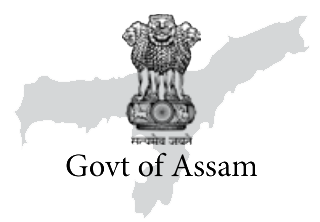It was an evening in the 1970s. Monobala Buragohain was winding the thread at the courtyard of her home in Mezenga in Sivasagar district. A young Pabitra was playing with a ball when he jumped atop the loom to get back his ball. An unfazed Monobala asked Pabitra to bow down before the loom to respect it after he had resuscitated his ball. An obedient Pabitra did as told. That was his first direct relationship with the loom, the thread, and the process of weaving, a relationship that he has taken to a new high by weaving success stories around it. He was probably too young then to even imagine that in the decades to come, this thread will connect him to the loom to reach an industrial scale.
His humble beginning was shaped by his father, a teacher of Mezenga High School, where Pabitra passed his matriculation from. A Commerce graduate, Pabitra did his MBA from Gauhati University and worked for four years. “I was not too keen to continue working for someone else. I wanted to venture out on my own but had no idea what to do. One day, I accompanied an acquaintance to a factory. The loom episode weaved itself in front of my eyes. It was a Eureka moment for me,” the soft-spoken entrepreneur tells Asom Barta.
His initial impression of villagers in his district handling yarn, their thickness and absence of it, and even colours of inferior quality yarn made him realise what he wanted to do. That is how the idea of Orient Processors Pvt Ltd came in 2001 with imported machinery and products catering to BIS (British Standard Institution) norms.
“It is a post-spinning and processing unit to produce fast colour cotton dyed yarn. The idea came to me after I realised these problems and the growth of my own entrepreneurial instincts coupled with the fact that I wanted to contribute something to this region,” he says.
In 2009, he imported machines from Italy, Germany and the US to colour and reel off yarns. The result was a brand called Ramdhenu.
Such is his insistence on quality that despite having a state-of-the-art laboratory at his premise, his samples are regularly sent for assessment to South India Textile Research Association’s (SITRA) laboratory, which is considered among the best in the country.

Maintaining the highest standard of quality check, Orient Processor has never looked back since. “Quality has been our hallmark”, says Buragohain. No wonder, he has managed to make his company grow and keep all stakeholders happy. One among them being Nirala Bodo. “The environment here is friendly. We have been care for by the management. In fact, we get bonuses twice in a year: Bihu and Durga Puja,” she informs this reporter. Buragohain says that her company has employed weavers from the North East to supply woven materials of various tribes across India and overseas.
“Handloom and textile is not just an economic activity for the people of the region. It is ingrained in their cultural ethos. It has an artistic value because our weavers are not ordinary workers. They are artists,” he says. “It is extremely important that the next generation comes forward to take it as a mission to strengthen the economic development of the region.”
His products or materials made by others using his products are catering not only to the Indian market but also abroad. Upholstery using his factory’s yarns have been exported to Europe by a firm based in Arunachal Pradesh. Similarly, hand towels, which have Orient cottons, have made their way from Meghalaya to Germany. “These stories keep us motivated and going,” he says.
“One of the reasons why we are growing on a regular basis is the use of technology,” says Pankaj Sarma, a marketing executive employed with the firm. “Our yarns are Azo-free. It means that they are very friendly for your body and the skin,” Buragohain, the three times president of Federation of Industries of North Eastern Region informs this reporter.
After a quiet start with Orient Processors Private Limited in 1999 to Orient Spun Silk and Processing Mills in 2017 and then Orient Knit Fab Private Limited, which exports garments with the brand name Orfab in 2020, the entrepreneur has come a long way by having all related elements of a textile value chain in one single campus, a no mean feat. It began with a thread, but has now many threads entangled to create a value chain, something which the entire region is proud of.












